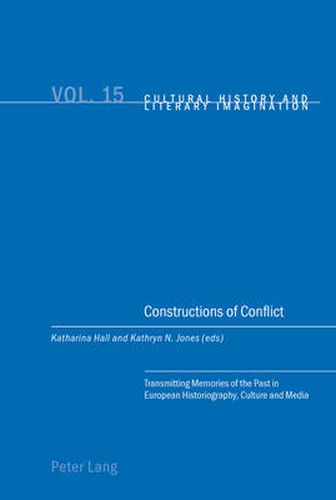Readings Newsletter
Become a Readings Member to make your shopping experience even easier.
Sign in or sign up for free!
You’re not far away from qualifying for FREE standard shipping within Australia
You’ve qualified for FREE standard shipping within Australia
The cart is loading…






This collection of essays explores the ways in which memories of social, political and military conflicts have been transmitted by twentieth- and twenty-first-century European historiography, culture and media, and the diverse representations, or constructions of conflict, that have emerged as a result.
Encompassing world wars, national conflicts, civil protests and acts of terrorism from 1914 to 2009, the volume examines constructions of conflict in multiple national contexts, including East/West Germany, post-reunification Germany, Spain, France, Italy, Great Britain and Iran. Individual essays investigate the roles played by agents and mediators of memory, from protesters, soldiers, policemen and sports officials to historians, journalists, writers and bloggers. In the process, they explore the complex interaction between state-sanctioned memories, political memories and personal recollections. The nature and influence of different carriers of memory are also discussed, such as historical narratives, commemorative ceremonies, memorials, literature, films, the new media of the World Wide Web and mobile phones, and visual representations including graphic novels and photographs. Organised around three key themes - ‘public and private discourses of memory’, ‘counter-memories’ and ‘commemorative practices’ - the contributions to this volume engage in a vibrant and instructive dialogue about contemporary processes of representing and constructing conflict.
$9.00 standard shipping within Australia
FREE standard shipping within Australia for orders over $100.00
Express & International shipping calculated at checkout
This collection of essays explores the ways in which memories of social, political and military conflicts have been transmitted by twentieth- and twenty-first-century European historiography, culture and media, and the diverse representations, or constructions of conflict, that have emerged as a result.
Encompassing world wars, national conflicts, civil protests and acts of terrorism from 1914 to 2009, the volume examines constructions of conflict in multiple national contexts, including East/West Germany, post-reunification Germany, Spain, France, Italy, Great Britain and Iran. Individual essays investigate the roles played by agents and mediators of memory, from protesters, soldiers, policemen and sports officials to historians, journalists, writers and bloggers. In the process, they explore the complex interaction between state-sanctioned memories, political memories and personal recollections. The nature and influence of different carriers of memory are also discussed, such as historical narratives, commemorative ceremonies, memorials, literature, films, the new media of the World Wide Web and mobile phones, and visual representations including graphic novels and photographs. Organised around three key themes - ‘public and private discourses of memory’, ‘counter-memories’ and ‘commemorative practices’ - the contributions to this volume engage in a vibrant and instructive dialogue about contemporary processes of representing and constructing conflict.